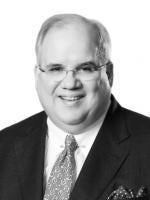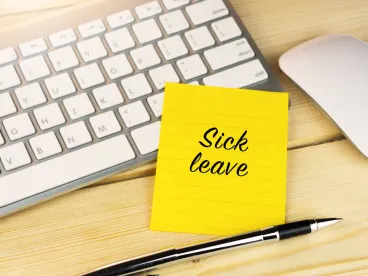On March 18, 2020, President Donald Trump signed the Families First Coronavirus Response Act (FFCRA) in response to the spread of the novel coronavirus and the illness it causes, COVID-19. The Act goes into effect on April 1, 2020 and remains in effect through December 31, 2020.
As discussed in our prior client alerts “Recent Clarifications to Families First Coronavirus Relief Act” and “Senate Passes Coronavirus Bill Requiring Paid Leave,” the Act provides for up to 80 hours (two weeks) of Emergency Paid Sick Leave if an employee is unable to work or telework for one of six specified reasons. Additionally, the Act provides up to 12 weeks of Emergency Paid FMLA Leave for one qualifying reason — that the employee is unable to work or telework due to the need to care for the employee’s minor child because the child’s school or place of care has been closed due to this public health emergency. The first two weeks of Emergency Paid FMLA Leave is unpaid, though the Emergency Paid Sick Leave will be applied to cover the first two weeks.
There are a myriad of questions and issues for employers to work through in applying these new provisions. Our team has been working non-stop to interpret these provisions, review new guidance, and provide answers. In addition, the Department of Labor (DOL) has established the COVID-19 and the American Workplace webpage, which includes a variety of fact sheets, Question-and-Answer pages, and workplace posters available to employers detailing these provisions.
One question that did not have a clear answer until yesterday was who fit into the “health care provider” exception to the requirement for an employer to make paid leave available. In its Question and Answers document, the DOL answers the question broadly and favorably to health care providers.
For the purposes of employees who may be exempted from paid sick leave or expanded family and medical leave by their employer under the FFCRA, a health care provider is anyone employed at any doctor’s office, hospital, health care center, clinic, post-secondary educational institution offering health care instruction, medical school, local health department or agency, nursing facility, retirement facility, nursing home, home health care provider, any facility that performs laboratory or medical testing, pharmacy, or any similar institution, employer, or entity. This includes any permanent or temporary institution, facility, location, or site where medical services are provided that are similar to such institutions.
This definition includes any individual employed by an entity that contracts with any of the above institutions, employers, or entities institutions to provide services or to maintain the operation of the facility. This also includes anyone employed by any entity that provides medical services, produces medical products, or is otherwise involved in the making of COVID-19 related medical equipment, tests, drugs, vaccines, diagnostic vehicles, or treatments. This also includes any individual that the highest official of a state or territory, including the District of Columbia, determines is a health care provider necessary for that state’s or territory’s or the District of Columbia’s response to COVID-19.
In light of this guidance, employers in the health care industry will not have to do what we initially feared — pick and choose which employees within its organization are subject to the exception from the paid leave provisions. Instead, all of the employees of employers in the health care industry as a whole may be excluded by their employer from the paid sick leave and/or expanded family and medical leave.
The traditional FMLA definition of a “health care provider” still applies in determining who can provide advice to an individual to self-quarantine due to concerns related to COVID-19, a qualifying reason for paid sick leave. Section 101 of the Family and Medical Leave Act of 1993 defines “health care provider” as a doctor of medicine or osteopathy licensed to practice in the applicable state, as well as “any other person determined by the Secretary [of Labor] to be capable of providing health care services.” The regulations issued under that section explain who qualifies as “any other person.” That list includes (i) podiatrists, dentists, clinical psychologists, optometrists, chiropractors, nurse practitioners, nurse-midwives, clinical social workers and physician assistants, in each case licensed by the applicable state and performing within their respective scope of practice; (ii) Christian Science practitioners; (iii) “[a]ny health care provider from whom an employer or the employer’s group health plan’s benefits manager will accept certification of the existence of a serious health condition to substantiate a claim for benefits; and (iv) a health care provider within the preceding categories who practices in a non-US country, is authorized to practice there, and is practicing within the permitted scope of practice.
As the effective date of the FFCRA nears, the DOL is scrambling to provide guidance on this quickly drafted law. This answer is a welcome one for physicians, hospitals and other health care industry participants, helping to ensure that they are able to retain the services of necessary personnel at this critical time.




 />i
/>i

